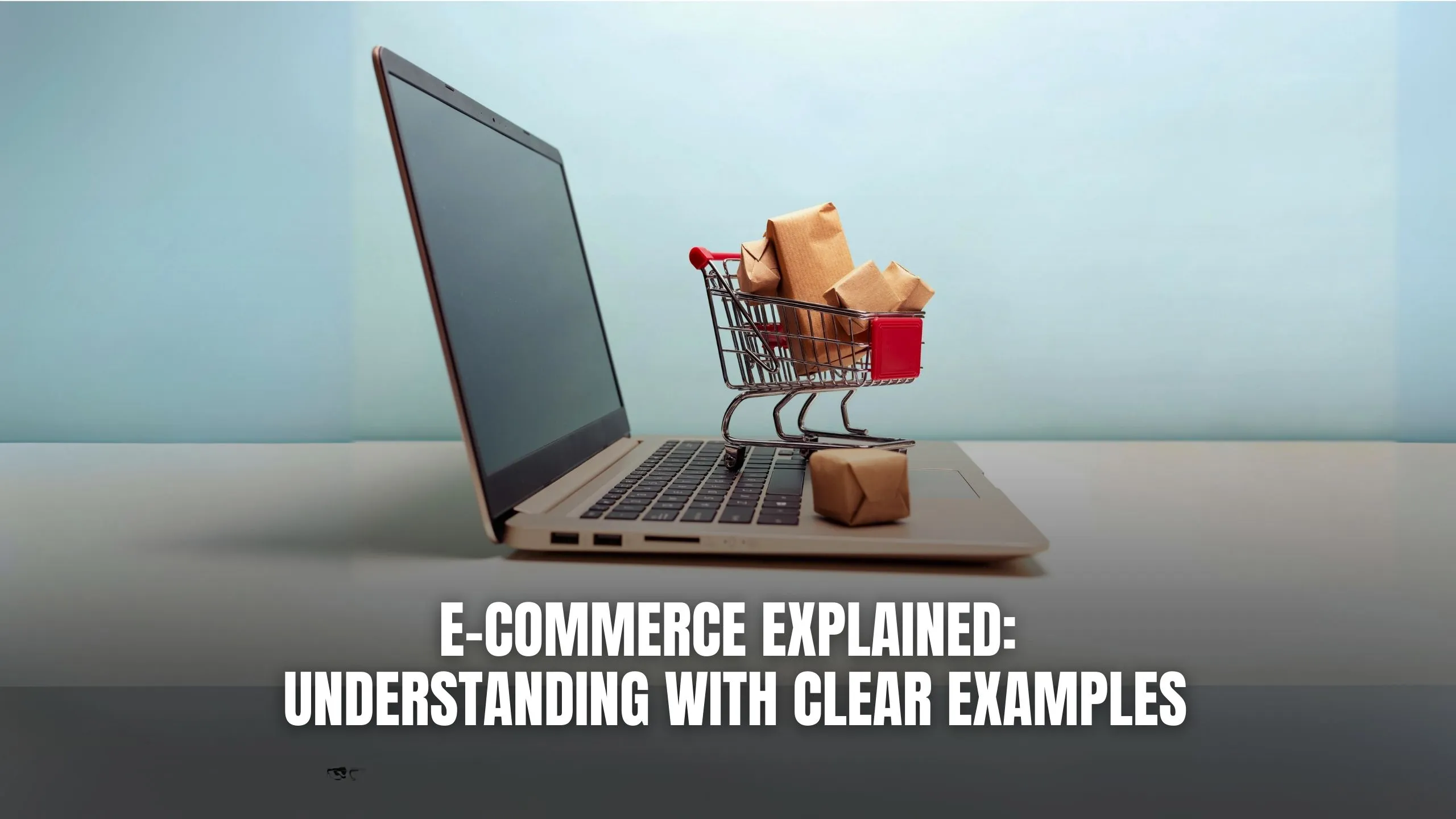E-commerce Explained: Understanding with Clear Examples


E-commerce Explained: Understanding with Clear Examples
E-commerce, short for electronic commerce, refers to the buying and selling of goods and services over the internet. It encompasses a wide range of activities, from online shopping and electronic payments to internet banking and digital ticketing. Let’s explore e-commerce in detail, with clear examples illustrating its various forms and applications.
What is E-commerce?
E-commerce involves conducting business transactions electronically, typically via the internet. This can include online retail stores, electronic marketplaces, online auctions, and more. One common example of e-commerce is purchasing goods from an online store, where customers browse products, add items to their cart, and complete transactions digitally.
For instance, John wants to buy a new laptop. Instead of visiting a physical store, he decides to shop online from an e-commerce website. He visits the website, selects the laptop he wants, proceeds to checkout, and makes payment using his credit card. The laptop is then shipped to his doorstep, all done through e-commerce.
Types of E-commerce
E-commerce can be categorized into several types based on the nature of transactions and parties involved. These include Business-to-Consumer (B2C), Business-to-Business (B2B), Consumer-to-Consumer (C2C), and more. Each type serves different purposes and involves distinct sets of participants.
An example of B2C e-commerce is when a customer purchases a book from an online bookstore like Amazon. In this scenario, the business (Amazon) sells directly to the end consumer (the customer). B2B e-commerce, on the other hand, involves transactions between businesses, such as a manufacturer purchasing raw materials from a supplier through an online platform.
E-commerce Platforms
To facilitate e-commerce transactions, businesses often utilize specialized software platforms known as e-commerce platforms. These platforms provide features and tools for building, managing, and operating online stores. Some popular e-commerce platforms include Shopify, WooCommerce, Magento, BigCommerce, and Wix.
For example, Sarah, an aspiring entrepreneur, wants to start her own online clothing store. She chooses to use Shopify as her e-commerce platform because of its user-friendly interface, customizable templates, and integrated payment processing. With Shopify, Sarah can easily set up her store, add products, and manage orders, all without any technical expertise.
E-commerce Payment Gateways
Payment gateways play a crucial role in e-commerce by enabling secure online transactions. These gateways facilitate the transfer of funds between buyers and sellers, ensuring that payments are processed safely and efficiently. Examples of popular payment gateways include PayPal, Stripe, Square, and Authorize.Net.
For instance, when Emily purchases a pair of shoes from an online retailer, she enters her credit card information during checkout. The payment gateway securely processes her payment, encrypts the data, and transfers the funds from Emily’s account to the retailer’s account, completing the transaction seamlessly.
Recommended SaaS Products
- Shopify: A leading e-commerce platform known for its user-friendly interface and customizable features, making it ideal for businesses of all sizes.
- WooCommerce: An open-source e-commerce plugin for WordPress, offering flexibility and scalability for online stores.
- Magento: A powerful e-commerce platform designed for enterprise-level businesses, providing advanced features for large-scale operations.
- BigCommerce: An all-in-one e-commerce platform offering robust tools for creating and managing online stores, suitable for growing businesses.
- Wix: A website builder with integrated e-commerce capabilities, perfect for entrepreneurs looking to establish an online presence quickly and easily.
Conclusion
In conclusion, e-commerce has revolutionized the way businesses operate and consumers shop. With the rise of internet technology, e-commerce has become increasingly accessible and convenient, offering endless opportunities for entrepreneurs and consumers alike. Whether you’re buying a product online, selling goods on an e-commerce platform, or managing transactions through a payment gateway, e-commerce has transformed the way we conduct business in the digital age.
Elevate Your E-commerce Experience with Subscribed.fyi!
Ready to take your e-commerce business to the next level? Unlock exclusive deals on essential SaaS tools tailored to optimize your online store and streamline your operations. Sign up for free today to unlock savings on 100+ SaaS tools and revolutionize your e-commerce strategy!
Relevant Links:








